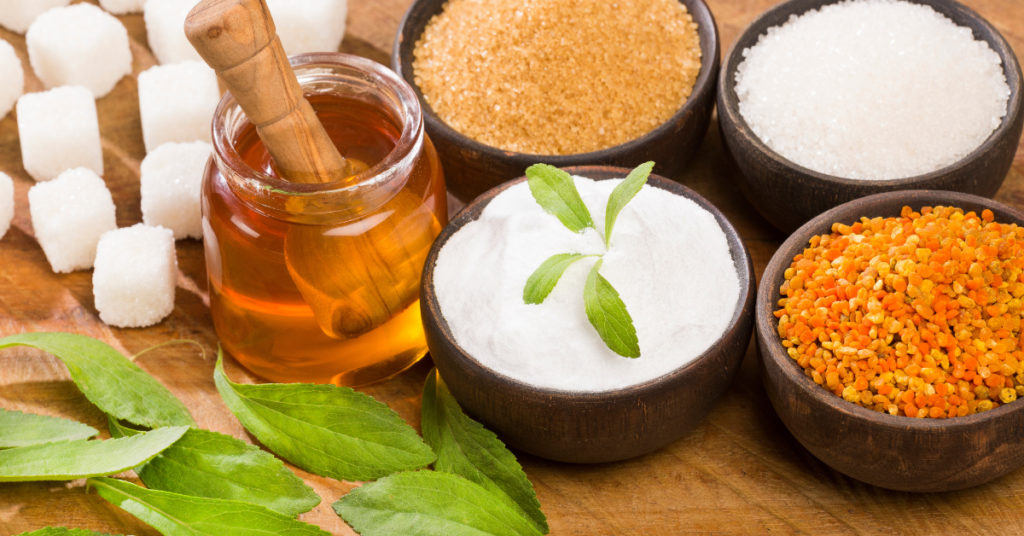
Are you watching your sugar consumption and want to add a little sweetness to your everyday foods? This can be challenging, but we have some good news. There is a wide variety of sweeteners and sugar substitutes out there that are less harmful compared to sugar and can help keep your smile in good shape. However, you may ask, how do I know which one is best for me and my teeth?
The glycemic index pertains to how much food elevates blood sugar levels. Sugar is 65.
We have compiled a quick guide to help you find the right sugar substitute.
Artificial sweeteners
These are man-made and are very much sweeter than actual sugar. Artificial sweeteners include aspartame, saccharin, neotame and advantame, as well as sucralose.
Glycemic index: 0
Pros: Artificial sweeteners do not cause tooth decay since they contain no sugar. They may also help balance the mouth’s acidity, helping reduce the number of bacteria.
Cons: Generally, artificial sweeteners are considered safe for the teeth. However, they may trick the body into regularly craving sweets. So, you are possibly exposing yourself to the risks of sugar intake if you substitute sugar for its artificial counterpart.
Fruit- and plant-based sweeteners
These sweeteners are derived from fruits and plants. Good examples of these are monk fruit extract and stevia. They do not have carbohydrates or calories.
Glycemic index: 0
Pros: These sweeteners may help reduce overall blood sugar levels and prevent weight gain.
Cons: Fruit- and plant-based sweeteners are generally considered safe, however, some studies reveal that consuming stevia may disturb your natural gut microbiome. Ultimately, it may disrupt your overall health, including your oral health.
Sugar alcohols
These are composed of alcohol molecules and sugar. They contain minimal amounts of calories, but the amount isn’t as high as sugar. Hence, they do not contribute much to blood sugar levels and tooth decay. Popular sugar alcohols include lactitol, erythritol, maltitol, isomalt, xylitol, and sorbitol.
Glycemic index: 1-2
Pros: Consuming sugarless gum with xylitol helps fight tooth decay and plaque while increasing saliva production and reducing the bacteria present in the mouth.
Cons: Some sugar alcohols are hazardous if consumed in big quantities. They are also unsafe for pets.
Natural sugars
These include coconut sugar, honey, agave nectar, dates, and molasses.
Glycemic index: 15-55
Pros: The compounds and nutrients found in natural sugar provide antioxidant and anti-inflammatory benefits. There are some, like agave nectar, that have a lower glycemic index compared to regular sugar. This means that it is absorbed and digested by the body slower and will not influence your blood sugar as much.
Cons: Natural sugars have sucrose which can lead to tooth decay. It is best to enjoy them in moderation.
The bottom line
Processed sugar is not only catastrophic to your teeth, but it can also lead to conditions like diabetes, obesity, and cardiovascular disease. The sugar substitutes enumerated above, when used in moderation, will help satisfy your sweet tooth without many calories and without causing tooth decay.
